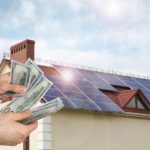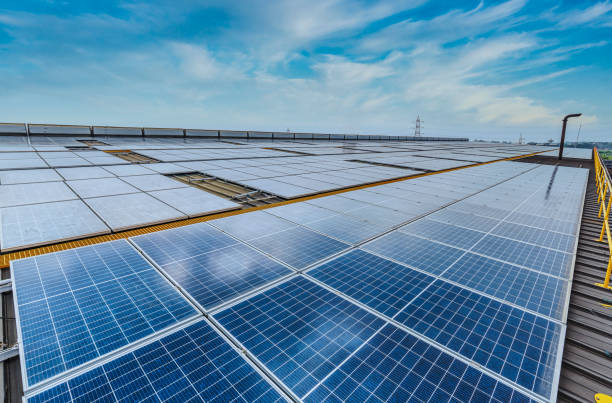Solar panel efficiency has been a topic of great interest to many people. Solar panels are environmentally-friendly and help save money on electricity bills. Many people have chosen solar products for their homes, and many others are considering switching to solar panels.
How efficient can solar panels be? And what factors affect solar panel performance? The material, installation and weather conditions all play a major role in determining efficiency. We’ll discuss some tips and tricks to increase the efficiency of your solar panels in this blog.
What is solar efficiency?
The amount of solar energy a solar panel produces is called its efficiency. Efficiency can also be described as the input power ratio to output power. This can be measured by how efficiently a solar panel converts sunlight’s input energy into energy. It is possible to expect 18% to 20% for residential solar panel efficiency.
Factors that affect solar panel efficiency
The panel’s construction and the environment surrounding it can have an impact on energy production and efficiency. Some materials are better conductors than others. Poorly installed systems can reduce the efficiency of solar panels by not getting enough sunlight. Genus Innovation can help you find the best price for solar panels in India.
It would help if you used high-quality solar panels to achieve superior energy efficiency. The ideal environment can then be created for the panels.
Panel factors:
- Monocrystalline factor This panel is efficient because it uses a pure silicon form. This purity allows electrons to move freely and generate more energy.
- The Panels with a polycrystalline factor are made from silicon fragments. These panels are the longest-lasting and most efficient polycrystalline panels.
- Thin film panels: These panels are the cheapest and most efficient but easy to install. These are the key factors that will improve your solar panel efficiency.
Real-world factors:
- Weather: Weather could impact the panel’s efficiency. While clouds don’t hinder their work, heavy rain or a lot of snow can affect the panel’s performance.
- Panel orientation As we’ve already mentioned, installation is key to panel efficiency. How well the panels reach the sun depends on the panel’s orientation.
- Shading – Shades can be from nearby buildings, trees or roof sections. This can reduce the panel’s ability to receive sunlight, which can, in turn, decrease its efficiency.
Genus Innovation is the best place to buy high-quality solar batteries for your home.
Here are some tips to increase the efficiency of your solar panels
You must have wished that your solar panel system worked well. These are some tips to increase the efficiency of solar panels.
- Clean the solar panels regularly. Dirty panels will not produce enough energy. The panels’ productivity can be affected by dirt, snow, debris, dead leaves, branches, or garbage. It is important to clean your panels at least once per month.
- Keep the panel clean: Get professionals to inspect and repair your solar panel regularly to ensure maximum efficiency and prevent damage.
- Find the best solar experts for panel installation: Consistent sunlight is essential for efficient solar panel usage. Only experts can install the panel correctly. Your panel expert must consider key factors such as shade from neighboring homes, trees, the shape of your roof, the position of your house, and other important factors to ensure a functional system. You need to hire a professional to install solar products at your home.
- Less energy consumption with LED lights: LEDs can be used to reduce energy consumption and make panels more efficient. LED bulbs are more durable than regular bulbs and use significantly less energy.








